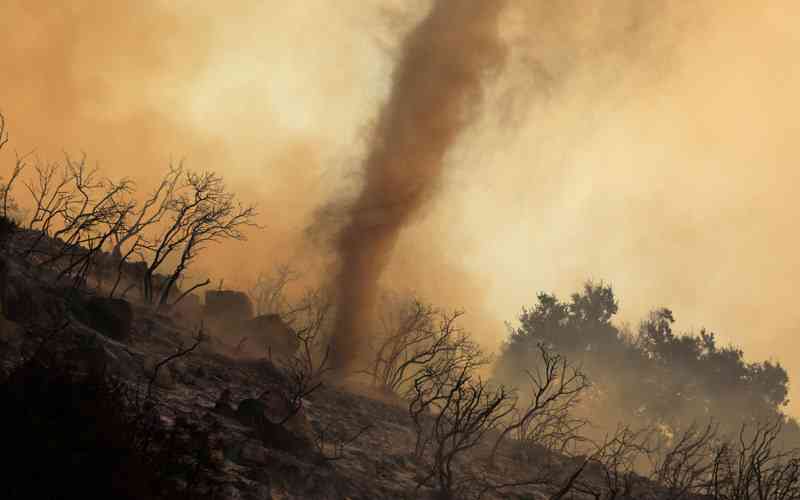
WITH COP 27 held towards the end of last year in Sharm el-Sheikh, Egypt, talk is continuing on the need to limit global warming to 1,5 degrees celsius. In the same vein, concerns are still focused on how developing countries are at the tail-end of the climate change discourse.
Though, with the optics against us, one would assume developing countries would be teeming and brewing with climate action troopers. Sadly, climate action seems to be the least of many developing countries’ worries. For not getting lynched for my opinion, allow me to zero in on my birth country, Zimbabwe.
On a tour around most of the country’s major city centres, you would be greeted by what one could term non-climate friendly behaviours. Take, for example, our choices of transportation, goods and the products we buy. Moving from the central business districts to the residential areas, these bad behaviours always show up. This takes form in the sources of energy we use for our household chores right to how we dispose of our waste.
One might argue that economic hardships are limiting people’s ability to take action when it comes to climate action but, from where I stand, it is because the will is non-existent.
Ask the ordinary person from the last country on the alphabet how many trees they have planted in their lifetime; their most likely rejoinder will be none. For those who have, the major reason will be far removed from greenhouse sequestration or the promotion of biodiversity.
Whys and wherefores could be for the anticipated fruits that the tree will bear; provision of shade or because a funeral company had provided the plant as part of the bereavement package. I do stand to be corrected, but the many climate-friendly activities we see around us do not emanate from the need or drive to go green but are mainly springing from the quest for comfort and hedging one’s self from the inconvenience that comes from unreliable service provision related to the national gridline (as in load shedding) and municipality water provision (as in water rationing).
Truth be told, the rooftop revolution in the form of solar panels and geysers we are seeing as part of the urban sprawl is for just what it is — comfort and saving household money in the long run. It is purely about profit and not planet! This reminds me of all the reviews that I have heard about the one popular hybrid car that people are importing from Japan.
Not sure if you have, but I have never come across a “Honda Fit” driver in Zimbabwe who is elated that their vehicle has reduced their carbon footprint. In the same vein, our unquenchable thrill to thrift is not because we are big on reusing.
- Mavhunga puts DeMbare into Chibuku quarterfinals
- Bulls to charge into Zimbabwe gold stocks
- Ndiraya concerned as goals dry up
- Letters: How solar power is transforming African farms
Keep Reading
Similarly, the disappointment that comes with one missing a Zupco bus is not within the premise of foregoing the environmental pros that come along with the busway but is, like many aspects affecting the choices of goods and services we consume, attached to a monetary value. If anything, there is a somewhat typecast attached to one travelling on the bus rapid transit.
Just a few weeks ago, I came across people getting belittled and accused of lacking focus if they had the latest kind of phones or pricey weaves or had their nails done and are catching a ride on a Zupco bus.
This is probably the part I should speak on how one who makes use of a bicycle as their main mode of transport is perceived but I will not cycle on the subject. Maybe I can drive towards how some people are not afraid to litter.
Just the other day, as I travelled from one city to another, in a “chicken bus,” the gentleman seated next to me “courteously’ opened the window as soon as I took the final sip of my drink. He gladly directed me to throw the bottle out of the window.
From a discussion with one colleague, climate action is for the affluent. It’s a bourgeoise thing to do — something of a hobby for well-off people with unlimited options — my colleague opined.
He argues that going green is more expensive than continuing on a business-as-usual path.
My dear colleague remains adamant that not so well-to-do people can also take part in the pursuit to reduce global warming. For example, he feels that poverty limits many folks from climbing up the energy ladder and as such tree cutting for firewood will forever be the order of the day in poor households. I doubt that my associate is one of a kind when it comes to his way of thinking about climate action.
He, like many people, also feels that the introduction of pre-paid water meters is a brazen violation to one’s right to water. In as much as climate action might not have been homegrown, humanity calls for it to be an obligation for everyone. All hands should be on deck to ensure that we do not get to 1,5 degrees celsius. There are various ways this can be done in our teapot-shaped country.
Our contributions might not be much but they will surely lead to steps towards the right direction. Business can chip in through the promotion of climate-friendly interventions through their corporate social responsibility activities.
They can also strive to have their businesses reach a state of net zero carbon or carbon neutral (note that there is a difference between the two) through a host of numerous routes.
All this can work towards good for corporates, especially in the background of so much tête-à-tête around environmental, social, and governance investing. Again, in the wake of the sustainable consumption revolution, even if the environment is not a burning issue for an enterprise, going green can win the brand loyalty of many climate-conscious clients.
As an individual, one can adopt pro-climate habits such as tree planting, energy and water conservation, as well as the basic R’s of waste management — reduce, reuse and recycle.
At the end of the day, as cliché, as it sounds, we did not inherit the earth from our forefathers but we borrow it from our children. Let us all take it upon ourselves to act against climate change.











